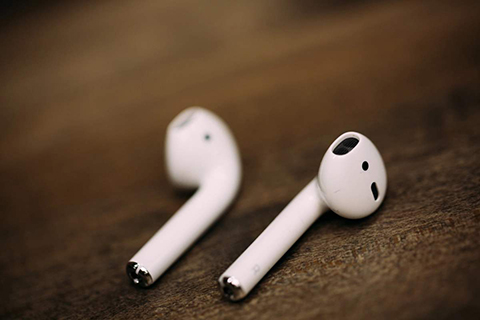Did not receive verification mail? Please confirm whether the mailbox is correct or not Re send mail

Vapor
- 2020-08-10 10:08:36
Apple returns fire in Koss AirPods patent infringement battle

Apple is firing back against Koss's patent lawsuit with a filing of its own, with Apple claiming not only that the personal audio manufacturer's claims are baseless, but also that it broke a confidentiality agreement.
In July, Koss filed in the U.S.
District Court in Waco, Texas accusing Apple of infringing several
patents it owns relating to wireless earphone technology, and that
selling AirPods, AirPods Pro, and Beats by Dre products is a violation.
Furthermore, the HomePod and Apple Watch were also targeted under
another patent relating to configuring wireless devices to work on a
wireless network.
In a new filing with the U.S. District Court
for the Northern District of California San Jose Division, Apple one-ups
Koss' five-count lawsuit with one containing six counts. While the
first details an alleged breach of contract, the other five each declare
Apple didn't infringe on each of five patents that Koss is using in its
own complaint.
According to the filing, the breach of contract
over a confidentiality agreement relates to a document dating back to
August 6, 2017, a time when the two companies were in licensing talks.
Under the agreement, "the parties agree not to use or attempt to use any
Communications, or the existence thereof, in a litigation or any other
administrative or court proceeding for any purpose."
It is
claimed that Koss sought out Apple for licensing discussions, as well as
insisting on a written confidentiality agreement, while Apple requested
discussions be made "without restriction." Apple argues that the
agreement protected both sides, as while it stopped Apple from using the
contents of discussions against Koss, it also prevented Koss from using
Apple's participation in discussions and sharing of information against
it as a "gotcha" for later litigation claims.
"That, however, is exactly what Koss did," the filing suggests.
Koss'
claims in the first filing includes references to how it met with Apple
multiple times over infringement allegations, which Apple believes is
itself an infringement of the confidentiality agreement.
The
other five counts for non-infringement of individual patents, argue that
Apple's products do not infringe the patents for a few reasons. For the
second count affecting patent number 10,206,025, Apple leans on how the
AirPods do not "initiate transmission of a request" to any "remote,
network-connected server," as it only does so to a local device.
The
third count, covering patent number 10,298,451, again dismisses the
threat against the HomePod, for the same reason that it doesn't send
credential data to "one or more host servers." It is a similar story for
patent number 10,469,934 for the fourth count affecting AirPods.
The
fifth count for patent 10,491,982 is fought due to AirPods not having
an "ear canal portion that is inserted into an ear of the user when
worn." Lastly, the sixth count for patent 10,506,325 is denounced by
Apple due to it describing a "curved hanger bar [that] rests upon an
upper external curvature of an ear of the user behind an upper portion
of an auricula of the ear of the user."
In its prayer for relief,
Apple asks the court to stop Koss from using the discussions raised
under the confidentiality agreement in any lawsuit, to declare Apple
doesn't infringe on the identified claims, a recovery of "reasonable
attorneys' fees," and any other relief. A trial by jury is demanded.
Source: appleinsider.com
Author:Malcolm Owen
Editor:Vapor
- I also said the two sentence
- Also you can enter 140words






